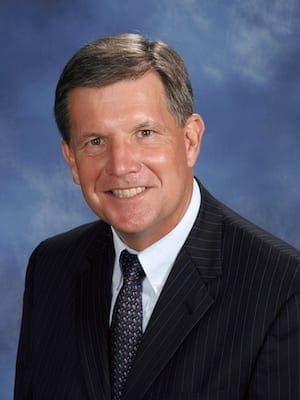When it comes to observing Mother’s Day at church, traditions vary around the country.
Factors influencing a congregation’s contextual practice include geographic location, denominational heritage, liturgical preference and congregational precedent.
In my first pastorate, I inherited that southern tradition I call “the Mother’s Day Flower Awards.”
This tradition, which occurred during the morning worship service, called for the pastor to wish all mothers a “Happy Mother’s Day” and then to recognize the oldest mother, the youngest mother and the mother with the most children.
Those mothers would come forward and the Mother’s Day Committee, an ad hoc committee appointed by the pastor, would pin a corsage on each of these distinguished mothers for them to wear for the remainder of the day.
This tradition was not without its complications. Much informal debate surrounded the eligibility of the award-winning mothers.
For example, if the oldest mother was a visitor and not a church member, was she eligible? Or what if the youngest mother was not married?
Was the award to the mother with the most children to be presented to the mother who bore the most children or the mother with the most children present in the worship service?
These questions often generated more lively and passionate discussion than the virgin birth, the trinity or the coming apocalypse.
On the second Mother’s Day at my inaugural pastorate, I was duly fulfilling my pastoral obligation to preside over the “Mother’s Day Flower Awards” when a bit of a controversy erupted.
The “Oldest Mother corsage” was presented to a 96-year-old matriarch. The “Youngest Mother corsage” was presented to a 21-year-old newlywed just prior to her first anniversary. But the “Mother with the Most Children corsage” was presented under protest.
The method of determining the mother with the most children entailed an interesting process of elimination. Following the tradition forged by my pastoral ancestors, I would ask all the mothers to stand.
Then I would ask mothers with two or more children to remain standing. Those with less than the stated number of children would be seated as they were eliminated from contention for this prestigious honor.
Then I would count upward, three or more children, four or more children and so forth, until only one or two mothers remained standing. Then I would ask, how many children do you have? And the winner would be determined.
In my orientation to the rules of the “Mother’s Day Flower Awards,” I learned that on occasion there is a tie for “Mother with the Most Children.” Therefore, the committee, who always had an extra corsage on hand, would bestow the honor on both mothers.
However, no one had prepared me for the dilemma I faced on that second Mother’s Day. There were two mothers left standing once the count reached eight or more children.
So, I asked each mother, “How many children do you have?” and the first replied, “Nine.” When I asked the second mother, she replied, “Eleven,” and I spontaneously said to this mother of 11, “Wow! Congratulations. Come on down to receive your corsage.”
As she was coming forward, another mother who was obviously rooting for the mother with nine children to win, said, “That’s not right. Those are not all her kids.”
And another mother, who happened to be a former member of the “Mother’s Day Flower Awards” committee, said, “Pastor, we usually don’t count the husband’s children from a previous marriage. Those 11 kids aren’t all hers.”
So, there I stood, a young pastor in the middle of a congregational debate in worship about which mother should get the “Mother with the Most Children” corsage. I made a Solomonic decision.
I simply said, “Since we are blessed to have two mothers with such a large number of children, I am going to ask both mothers to come forward and be recognized with a corsage.”
Thankfully, both mothers smiled and the congregation applauded. And I preached an inspiring Mother’s Day sermon while inwardly pledging never to give “Mother’s Day Flower Awards” again.
Nowadays, I simply wish all mothers, grandmothers, stepmothers, soon-to-be mothers, wannabe mothers and other mother figures a “Happy Mother’s Day” during the welcome prior to worship.
Then we worship God with gratitude for all motherly influences without pinning a flower on any mother or putting any mother on a pedestal.
Barry Howard serves as senior minister of the First Baptist Church of Pensacola in Florida.
Pastor at the Wieuca Road Baptist Church in Atlanta. He also serves as a leadership coach and columnist for the Center for Healthy Churches. He and his wife, Amanda, live in Brookhaven, Georgia.

